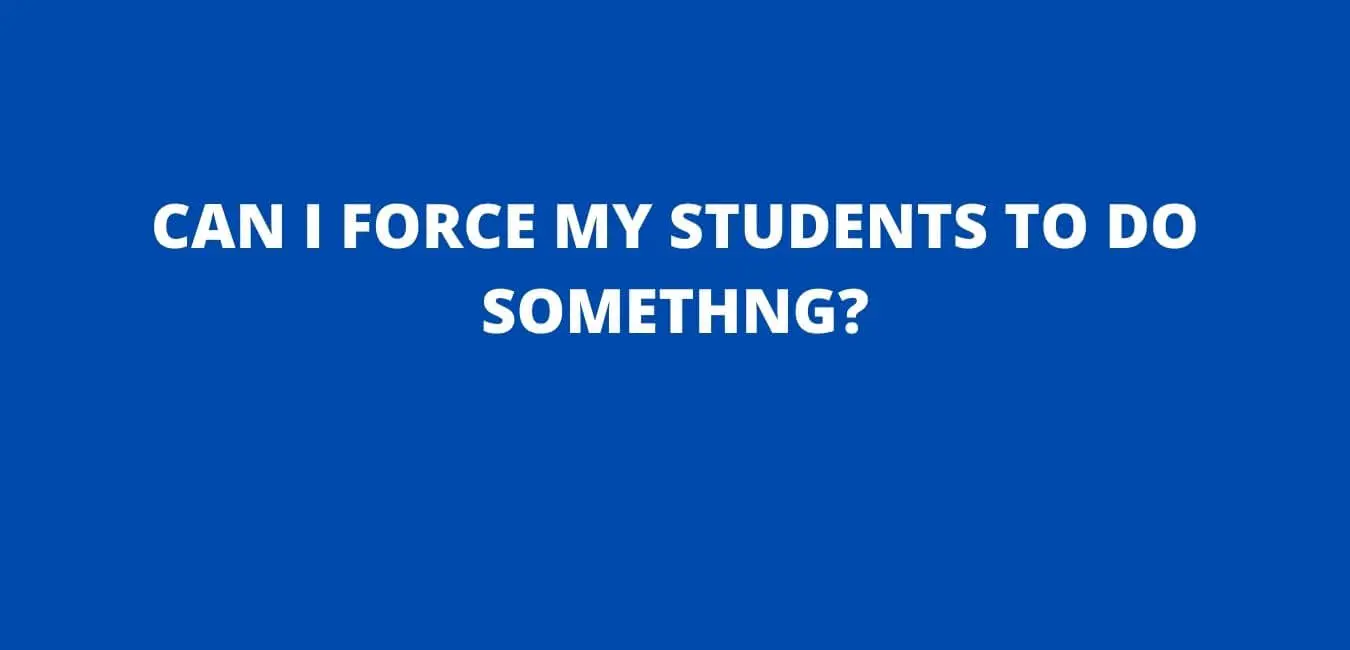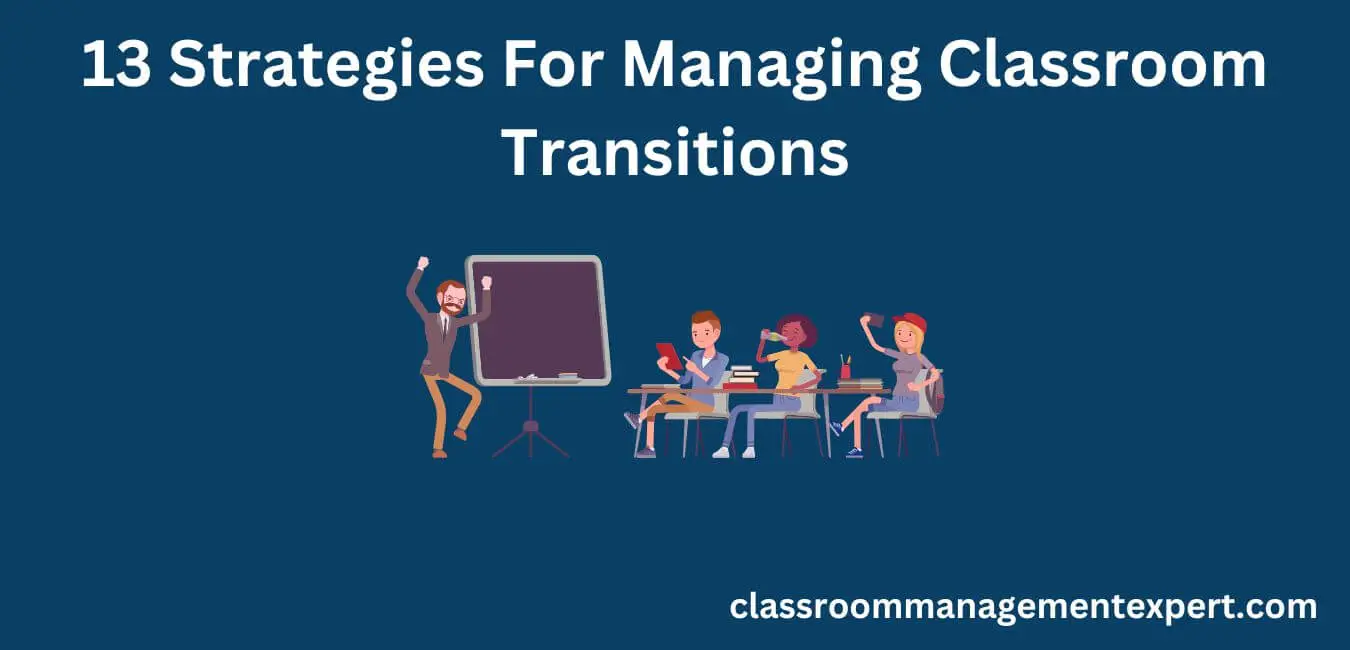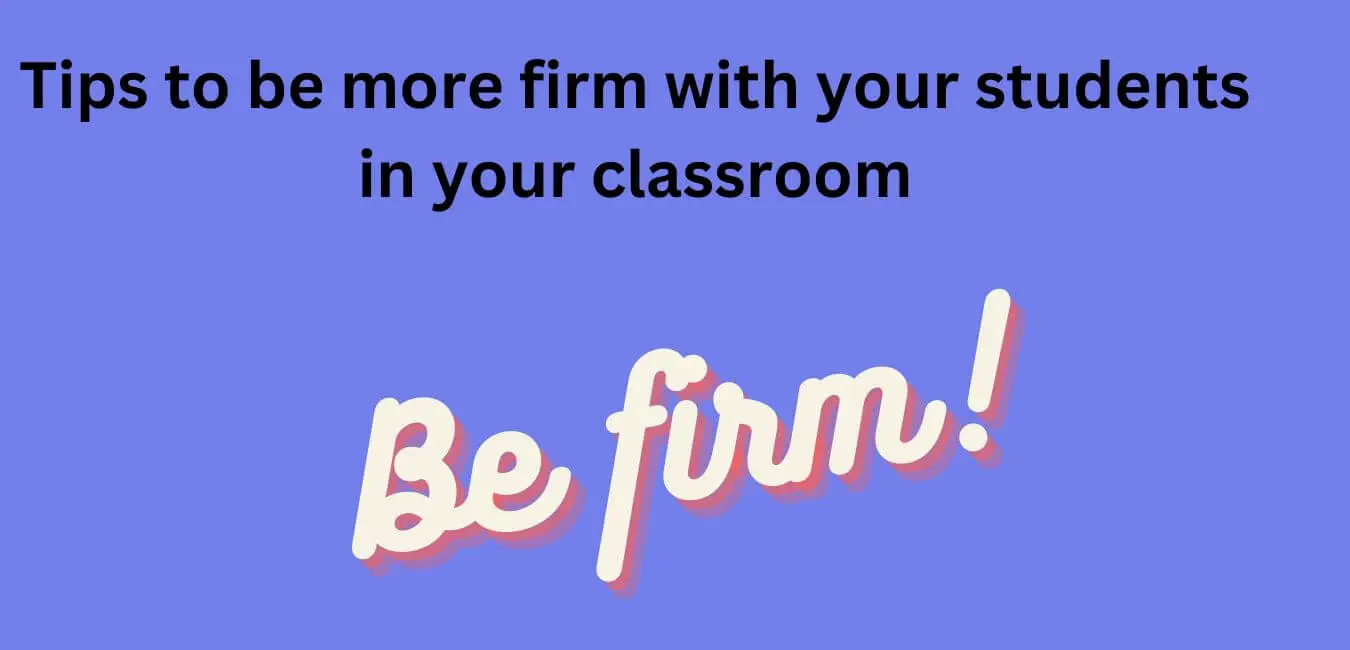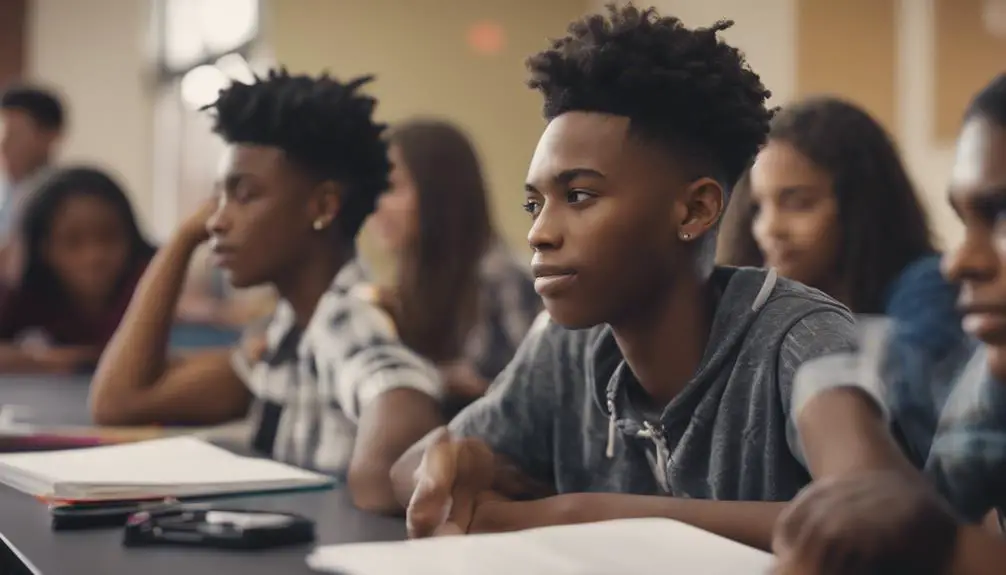Teachers and parents often ask this question: “Can I force my student to do something?” The answer is probably not. In the past, teachers have been able to use physical coercion, such as corporal punishment, in order to get students to comply with their instructions. However, spanking has been banned in many states in the US and countries because it is seen as a form of child abuse.
However, even if you could find some way of forcing your student to obey your instructions without hurting him or her physically-which would be illegal anyway-you still couldn’t force him or her into understanding the material that you’re teaching. So, while you can’t force a student into compliance with your instructions on a purely practical level, there are other ways of getting the student to do what you want.
You can motivate a student through positive incentives-such as giving them candy or praise when they accomplish something. You can also try to make the task less difficult for them by creating a fun, learning environment that makes it easier for them to learn and absorb information.
I think the answer to the question is largely dependent on the definition of “force” in the question. I think our laws, irrespective of our countries, still provide instances where a student can or cannot be forced to do something. That is, they can be forced in some situations but cannot be in others.
This post explores the question in detail and provides both of the instances under which students can or can’t be forced to do something.
Ethical Demands for Teachers
Every day, teachers make ethical decisions regarding teaching. Some of these decisions are easy to make, like whether or not to pass a student who hasn’t done the work. Others are more difficult, like whether or not to give a student an “F” when their performance is clearly failing but they show tremendous effort and academic promise. There are ethical decisions specific to teaching, and there are ethical demands across all professions.
Teachers must consider the following 20 ethical choices for teachers:
1) Give students a chance to learn from their mistakes.
2) Make sure the grading system is fair.
3) Co-operate with administrators.
4) Make ethical decisions when teaching controversial material.
5) Follow the school district’s dress code.
6) Be Always respectful of students and parents/guardians, even if they are disrespectful to you.
7) Be honest about your qualifications.
8) Make an effort to know your students.
9) Be accountable for whatever you do, in or outside of school.
10) Use good judgment when dealing with student behavior.
11) Follow all safety guidelines when using tools and equipment.
12) Be Always on time.
13) Complete your work, such as lesson plans and grading.
14) Be ready to teach whatever is in your class plan.
15) Maintain professional relationships with students.
16) Use time effectively.
17) Be respectful of colleagues.
18) Maintain confidentiality.
19) Encourage student self-expression.
20) Make the classroom a safe place for students to express their ideas and opinions freely, even if they are opposing yours.
These decisions must be made daily by teachers. It is important to note that ethics are constantly evolving, and new ethical demands are placed on the shoulders of educators each year. An ethical dilemma can occur at any time, but it is also possible for teachers to make an unethical decision without even knowing it. For that reason, teachers should have a list of ethical issues in teaching readily available for reference.
Can A Teacher Force A Student to Do Something?
It’s a generic question, so it doesn’t have a clear answer. It can depend on the specific situation of what you mean by “force” and the consequences of that course of action.
There are some cases where teachers have been known to force students to do things, such as homework or cleaning up after themselves, but there are times when that’s not ethical.
Reasons Why A Teacher Can Force A Student to Do Something:
1. It benefits the student because they’re forced to do something they don’t want to do. For example, if a teacher makes a student stay after class to finish homework that they didn’t try to complete earlier in the day, it can be a good thing because it means the student won’t have to stay up late at night to complete the assignment.
2. It benefits the teacher by making their job easier. If students are allowed to do whatever they want, there’s no telling how much work they will actually complete and turn in. When teachers tell them, what is expected of them and they don’t do it, teachers should use force.
3. Some students don’t care about school and only take the minimum effort they can get away with. These students make it harder for other students to learn because their grades bring down the curve for everyone else in the class. In these cases, a teacher might need to force a student to complete an assignment.
4. Teachers are the authority in the classroom, which means they get to make decisions for what happens on their campus. Sometimes this involves forcing students to do things.
5. A teacher might be able to force a student to do something because it can benefit someone ultimately. For example, if a student had strep throat that is contagious, but the teacher let the student come to class anyway, they would spread the illness and make other students sick. So, the teacher or school is allowed to force the student to stay home until they’re certain the student can’t infect anyone else.
6. It’s possible for a student to ask a teacher for something and be denied, but the student could also skip asking and just do it without permission. In these cases, teachers should use force to get the students to follow the rules they set in their class.
7. A teacher has more information about what is going on in a student’s life than they might be able to share during office hours or after-school conversations. They can see signs of depression or abuse when they talk with a student, but it might be overstepping their boundaries to force the student to talk about it. However, they can use force in order to get students to do something that will help themselves or someone else, like getting help for depression or reporting abuse.
8. Some students don’t have any choice but to obey their teachers’ demands because it’s either they do what the teacher says or fail the class. This is related to having information about their students’ lives, but it’s more focused on helping struggling students out. Sometimes parents send their children to a school where they can get a good education, but don’t provide enough support at home to help them succeed in school. In these cases, teachers have a responsibility to use force in order to help the student do better.
9. Teachers can’t always rely on parents to teach their children how to be respectful and responsible, so they need to take the time to teach them themselves. This is especially necessary for schools where there are lots of disrespectful students who don’t pay attention in class or care about their grades. In these cases, a teacher might need to force a student to stay after school as a warning or to give them detention if they don’t listen in class.
10. Sometimes teachers have students who come to class with items that are injurious to themselves and others. If a teacher doesn’t use force to stop them from bringing those items, it will cause injury to someone one day. Meanwhile, teachers must assure the safety of their classrooms for everyone.
11. Sometimes teachers have students who have very limited knowledge about certain concepts. A teacher might need to take it upon themselves to teach these students everything they should know, even if that means using force to get them to stay after school or organizing extra lessons for the students.
12. Some students might think they know better than their teachers and it can be hard for teachers to convince them otherwise when they disagree on a subject. In these cases, some teachers may have to use force in order to keep the classroom running smoothly and give all of their students the education they deserve.
13. In some cases, a teacher might see a student’s potential but know their current behavior is holding them back from achieving it. In these situations, teachers have both a responsibility and a right to use force in order to get the students to do what they need them to.
14. Teachers are responsible for their students’ safety, which is why they need to take action whenever a student’s behavior becomes dangerous. This is also related to using force when students refuse to follow the rules set by the teacher in charge of their class.
15. Every teacher has to make sacrifices in order for their students to learn, which means using force when necessary. Sometimes this can mean that the class becomes less enjoyable because of the behavioral rules, but it’s all for a good cause.
Check out our article on Canters’ Assertive Discipline here.
Ten Circumstances Under Which A Teacher Cannot Force A Student to Do Something:
1. Teachers are not allowed to force students to do anything except attend class when they are in elementary school.
2. Teachers cannot force students to take medication without the written permission of parents.
3. Schools are not allowed to make a student do anything that would violate their religious beliefs or practices, even if it is against the school’s rules or policies.
4. Teachers may not force students to work during school hours or at any time without paying them for their time.
5. Students cannot be made to do something against their own will, even if it’s the school’s policy.
6. Teachers are not allowed to force a disabled student into doing anything that damages or negatively impacts their education.
7. Students cannot be made to do anything that would violate their religious beliefs or practices, even if it is against the school’s rules or policies.
8. Teachers may not force students to pay for things in order to talk bad about other students.
9. Schools cannot force a student to take medication without written permission from their parents and only if it is medically necessary.
10. Teachers cannot force students to do against their will, even if it’s the school’s policy, except at elementary school when they are required to attend classes.
Final Thoughts
You cannot force a student to do anything that would violate their religious beliefs or practices. You may not make them do something against their will, even if it’s the school’s policy. Teachers are responsible for students’ safety and sometimes they need to take action when students refuse to follow the rules set by the teacher in charge of their class. Every teacher has to make sacrifices in order for their students to learn, which means using force when necessary; however, at elementary school teachers are required only to attend classes with no other obligations outside of teaching them what is needed during this time period while more experienced teachers have multiple responsibilities like maintaining classroom discipline and correcting homework mistakes on top of teaching lessons according-to-plan. Visit our blog page for more inspirational articles.



















